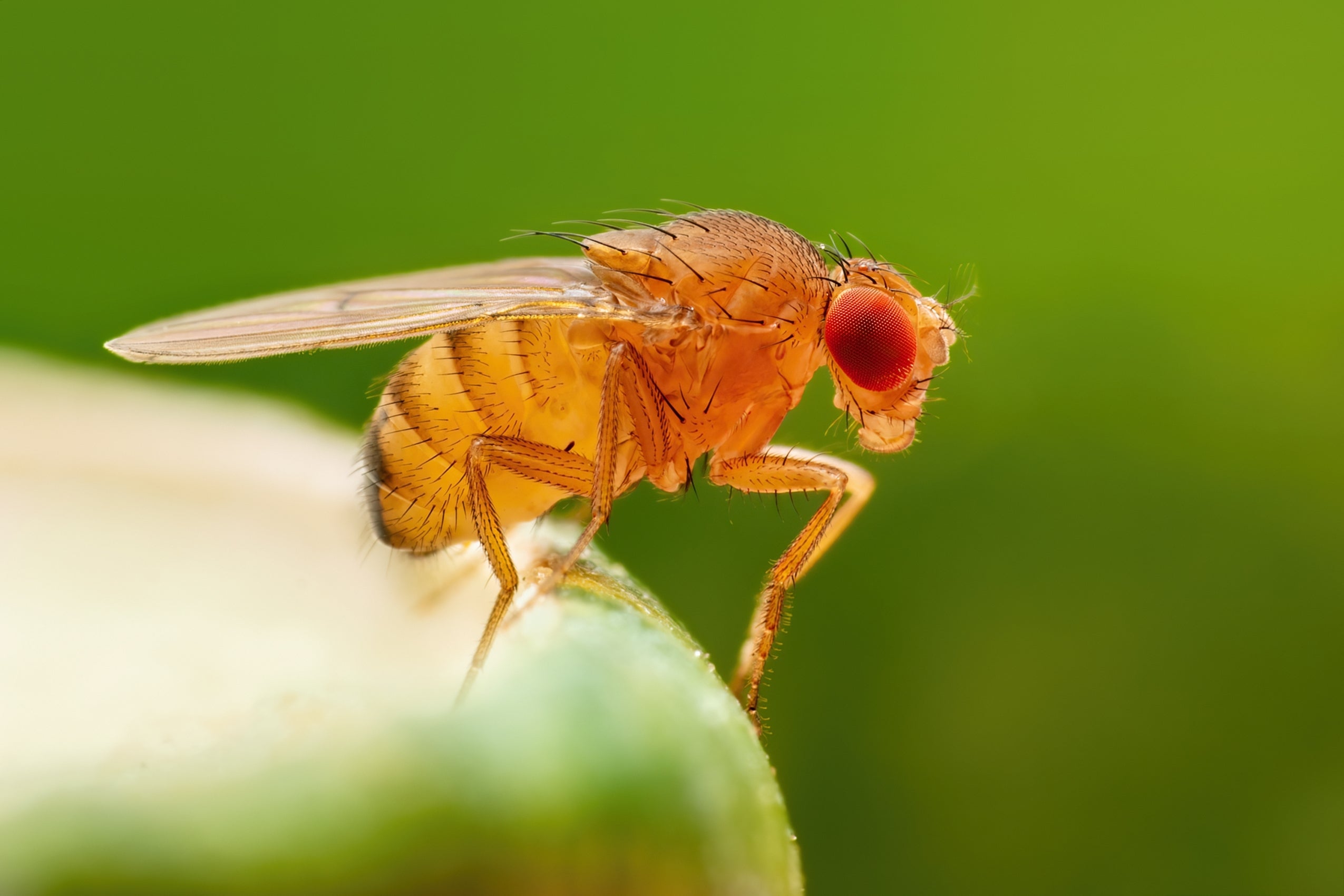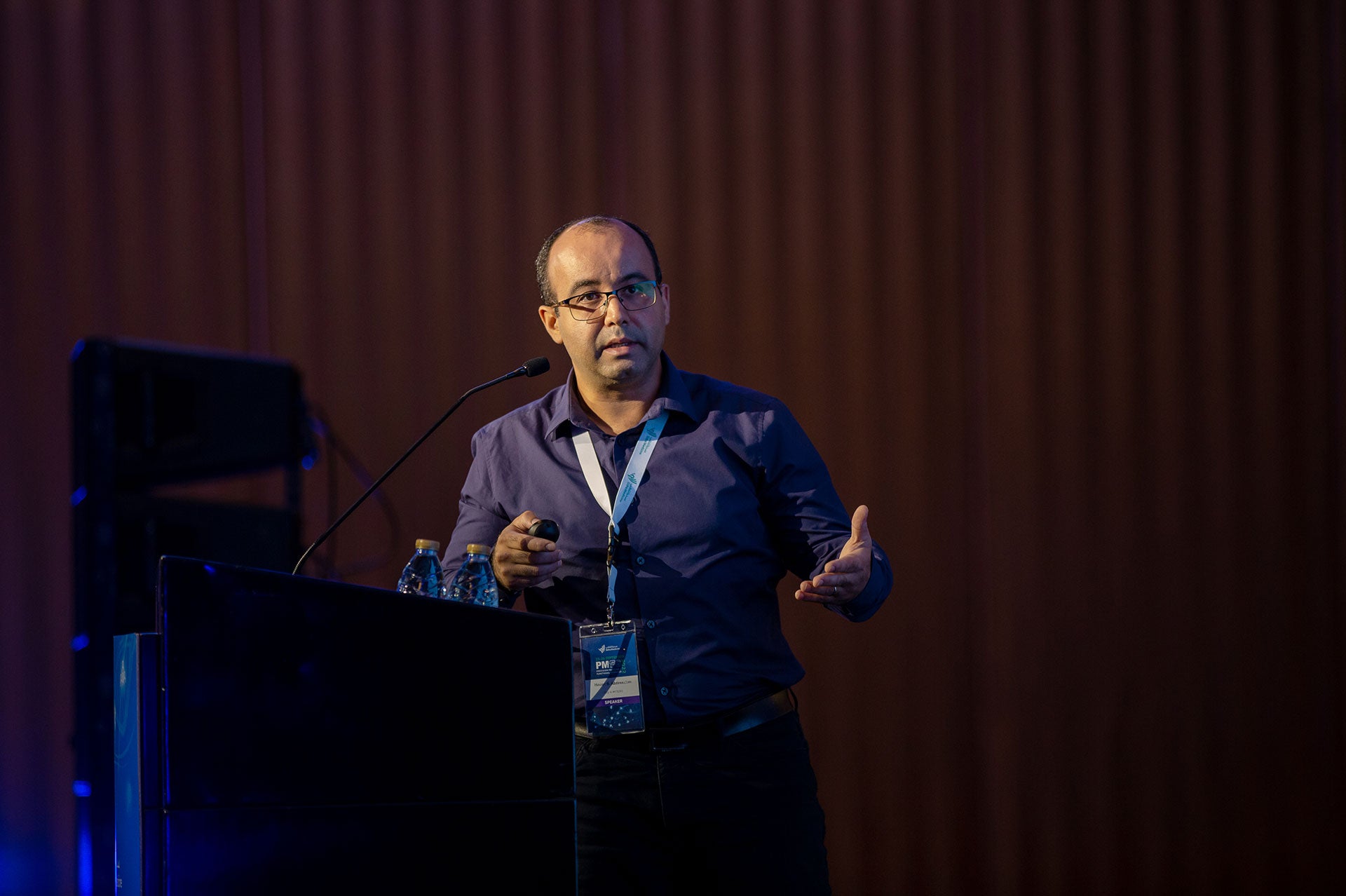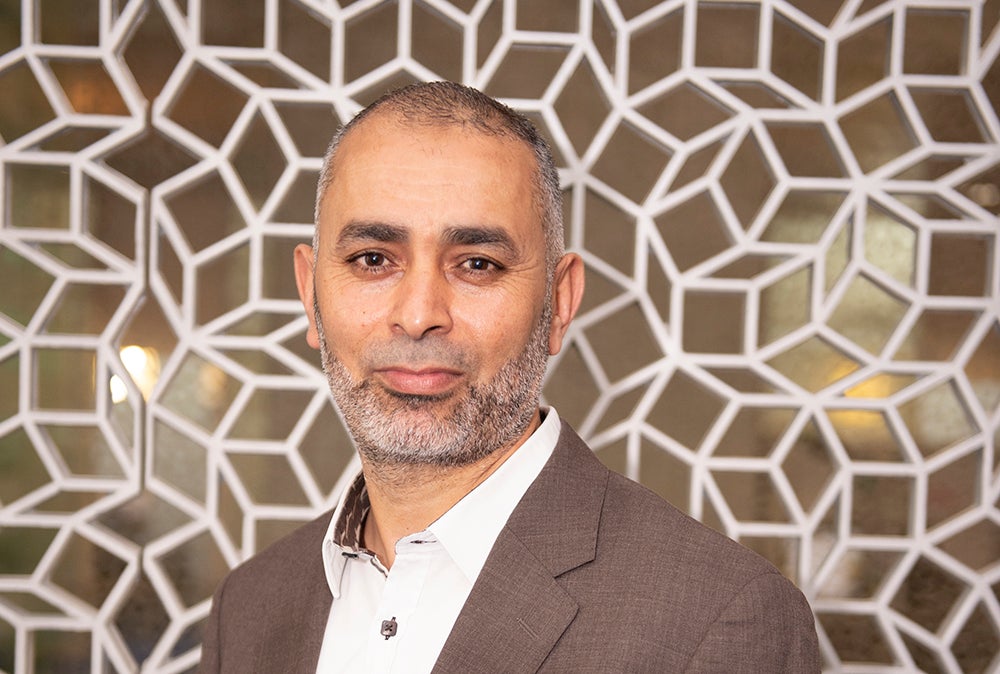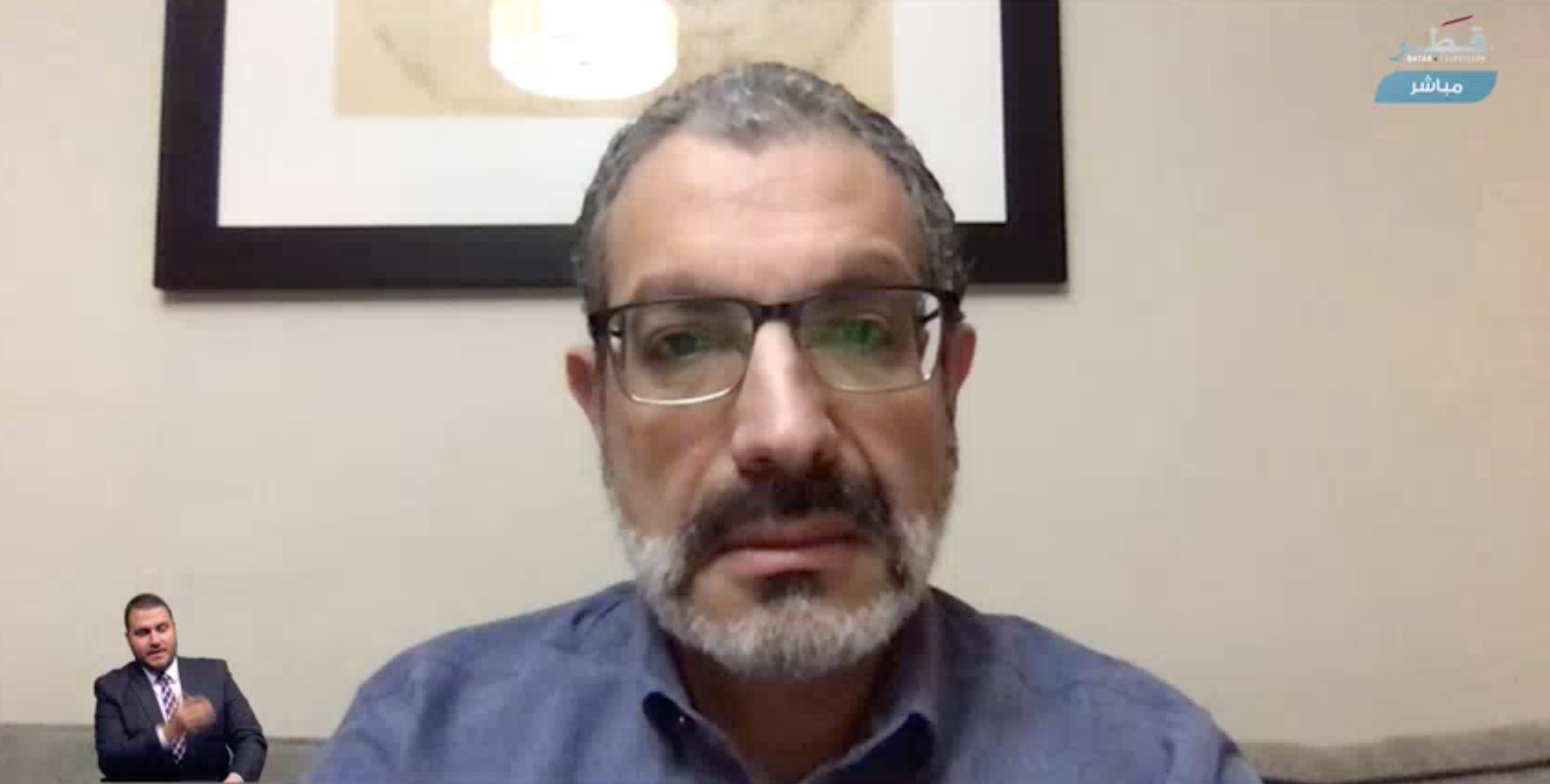
HBKU’s College of Health and Life Sciences Highlights Potential New Applications for Selective Enzyme Inhibitors in Leading Journal
Clinical significance of PDE5 inhibitors for design of novel therapies brought to the fore

A valuable review of the structure of the PDE5 enzyme and its interaction with clinically relevant inhibitors conducted by Dr. Kabir H. Biswas, an assistant professor at the College of Health and Life Sciences (CHLS) at Hamad Bin Khalifa University (HBKU), has been published by the multidisciplinary Biomedicine & Pharmacotherapy journal.
Dr. Biswas co-authored the review article with Dr. Anupriya M. Geethakumari, a postdoctoral fellow, and Wesam S. Ahmed, a Doctor of Philosophy student in Biological and Biomedical Sciences at CHLS, both members of the Biswas Lab, an interdisciplinary group engaged in understanding the mechanisms of cellular adhesion and signaling, and developing means to manipulate the same. Dr. Biswas’s laboratory employs a variety of approaches including engineering precision biosensors and biointerfaces.
Reviewing the structure of phosphodiesterase 5 (PDE5), a relatively well-studied multidomain enzyme, and how its function is regulated, the article focused on the clinically relevant inhibitors that target the protein with the aim of better understanding the structural bases of their affinity and specificity.
The pharmacological inhibition of PDE5 has already been demonstrated to have several therapeutic applications. While they are designed to inhibit PDE5, the inhibitors show different affinities and specificities against various other PDE subtypes. Understanding how these inhibitors interact with PDE5 and the structural basis of their selectivity is critically important for the design of novel, highly selective PDE5 inhibitors as well as precision medicine-based therapy.
The article also notes that while PDE5 inhibitors have several therapeutic applications, only three of these are approved by the US Food and Drug Administration. With increasing evidence that PDE5 inhibitors could play a role in managing a number of additional diseases, including cancer and COVID-19 complications, clinical studies are warranted in order to extend the therapeutic applications of these inhibitors to a wider range of diseases. The full published article is accessible online.
Dr. Dindial Ramotar, Professor and Head of the Division of Biological and Biomedical Sciences, CHLS, said: “PDE5 inhibitors have shown their potential for multiple medical applications, including potential treatment for cancer and heart disease, and as a result there is an understandably heightened keenness for developing novel PDE5 inhibitors. Our study at the Biswas Lab aimed to fulfil a fundamental aspect of such work, and that is to collate what we know about this enzyme and its inhibitors in order to fully understand their therapeutic indications. The publication is therefore likely to prove very useful to researchers engaged in this field and this aligns well with CHLS’ ongoing interventions to address the pressing needs of the healthcare sector.”
For more information on the work of the College of Health and Life Sciences, please visit chls.hbku.edu.qa.
Related News
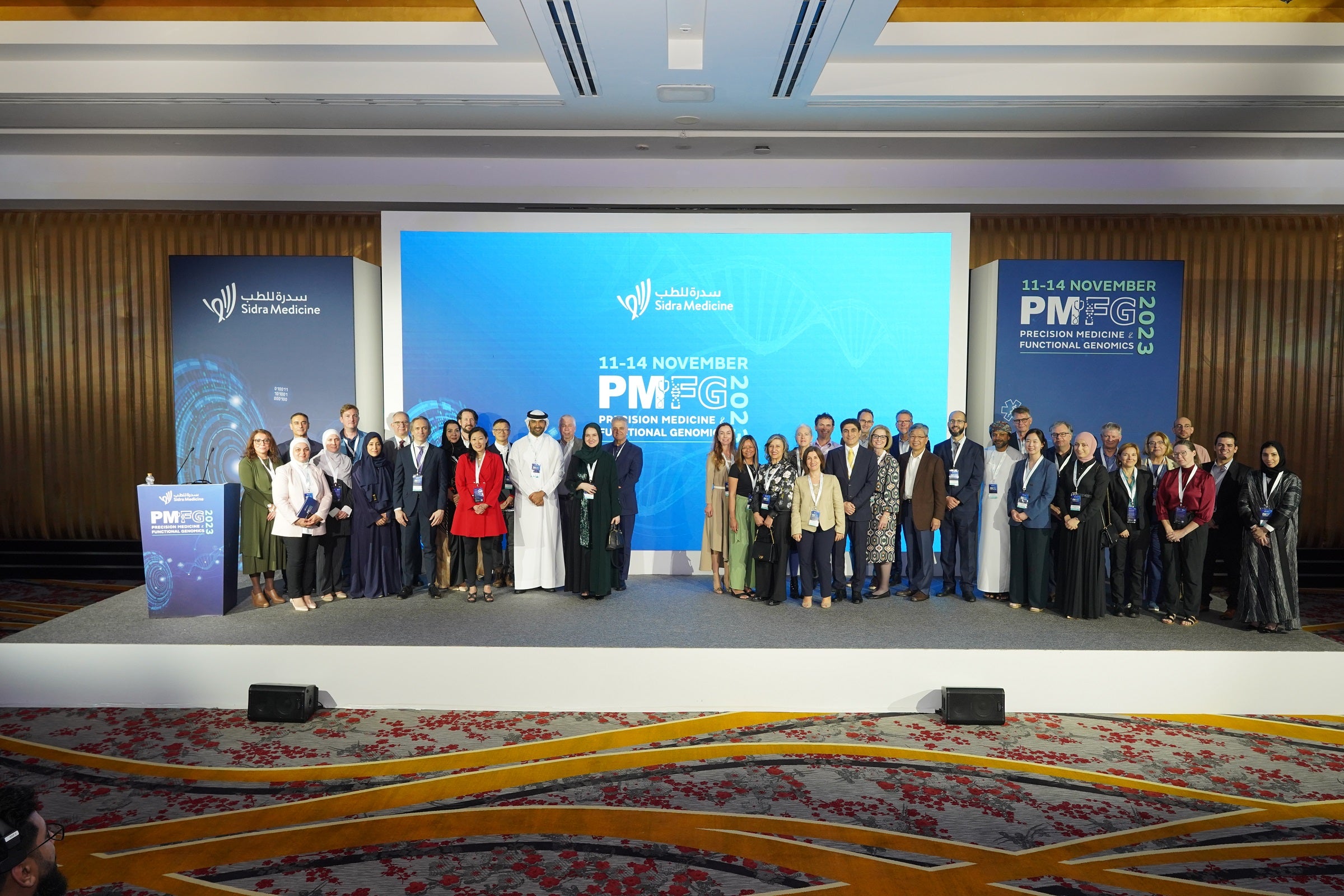
HBKU Participates at Sidra Medicine’s 9th Precision Medicine and Functional Genomics Conference
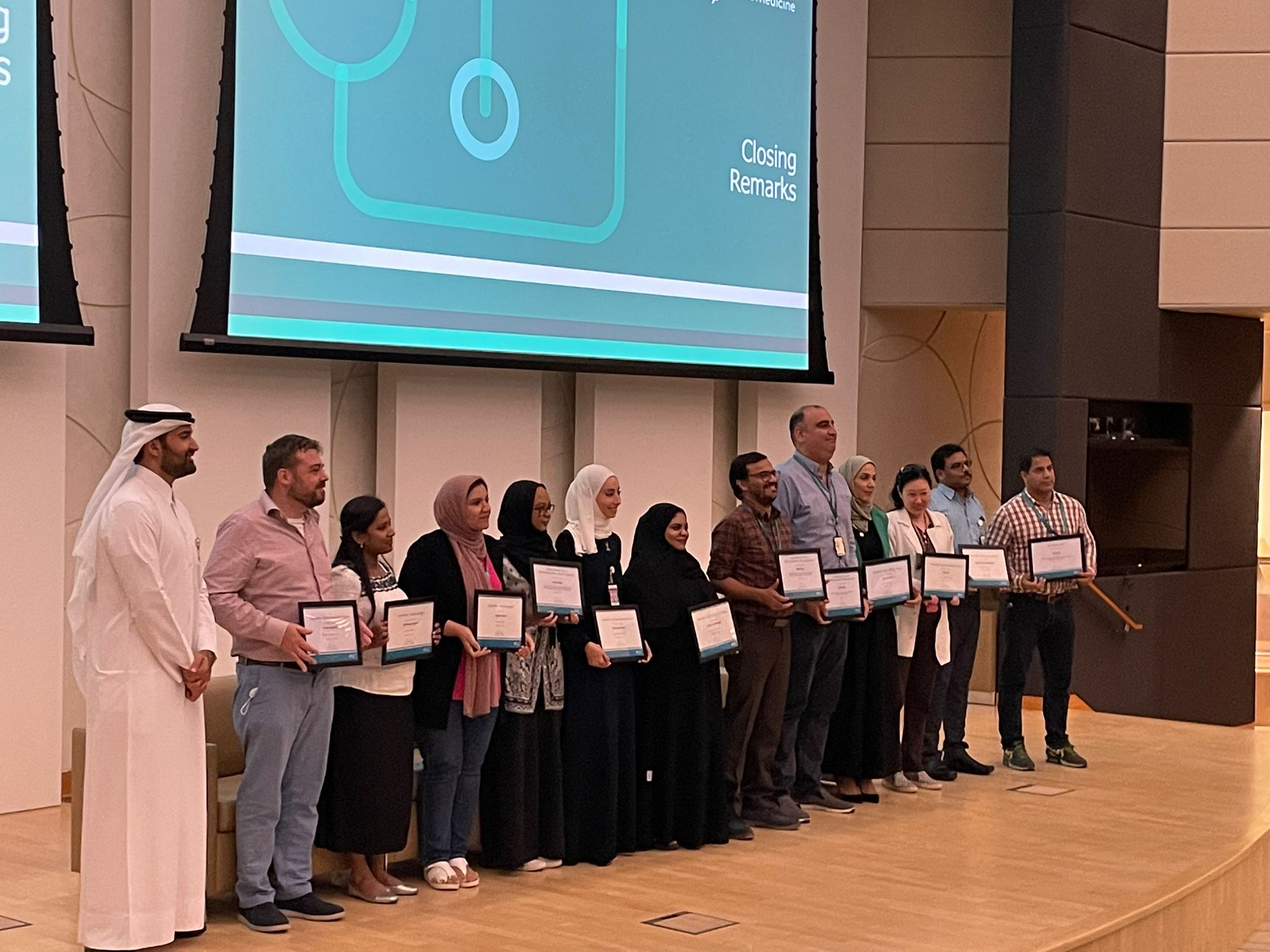
Doctorate Student at HBKU’s College of Health and Life Sciences Receives Specialist Author Award
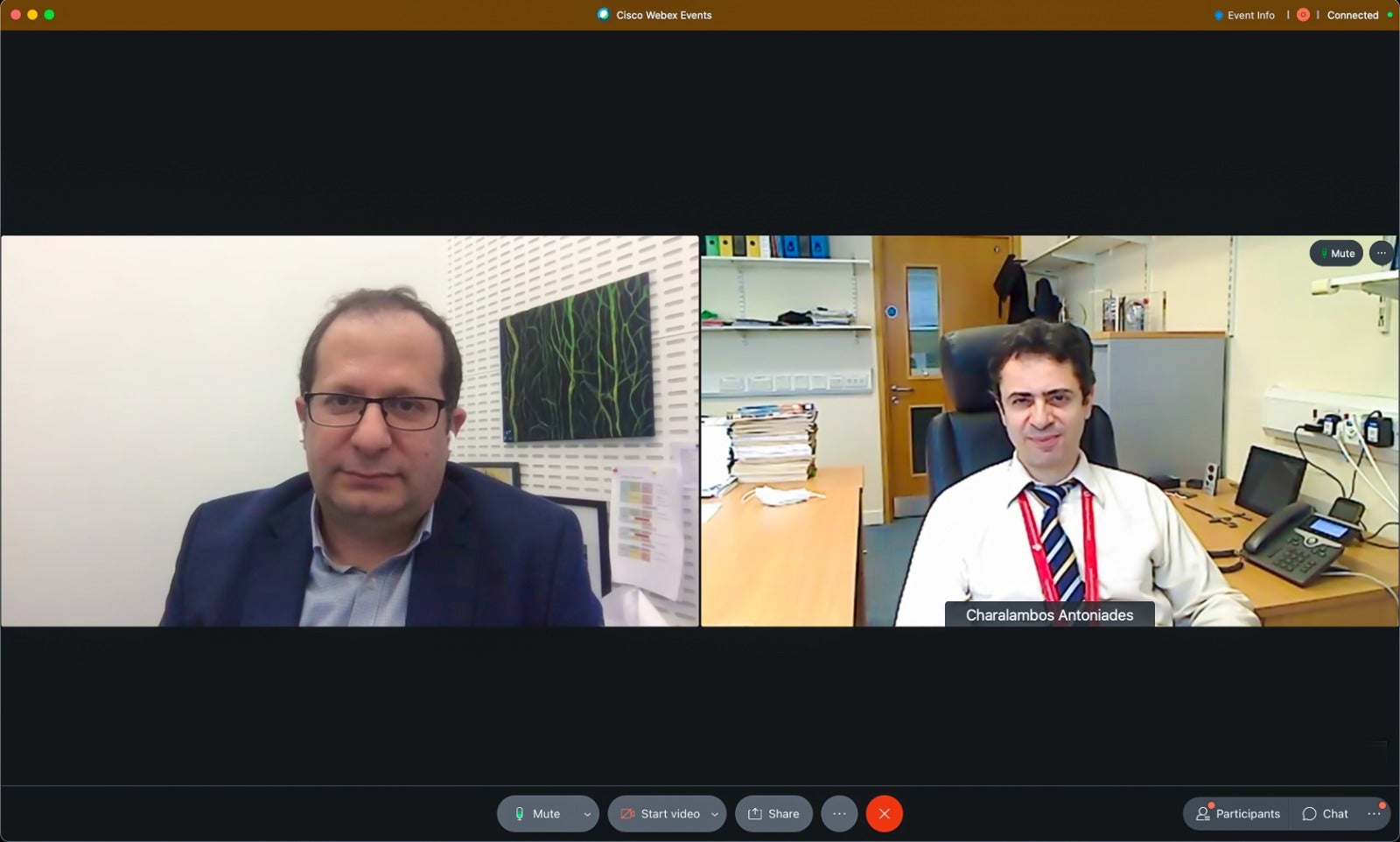
CHLS Presents Webinar on Advances in Early Detection of Heart and Brain Diseases

Vaccination is Vital Not Only for Individual Health but Also to Thwart the Pandemic

College of Health and Life Sciences Highlights Graduate Degree Programs at Virtual Information Session

HBKU’s College of Health and Life Science Highlights Potential for Research Exchange at Qatar-Poland Roundtable

HBKU’s College of Health and Life Sciences Collaborates on Computational Analysis for Potential Drug Repurposing
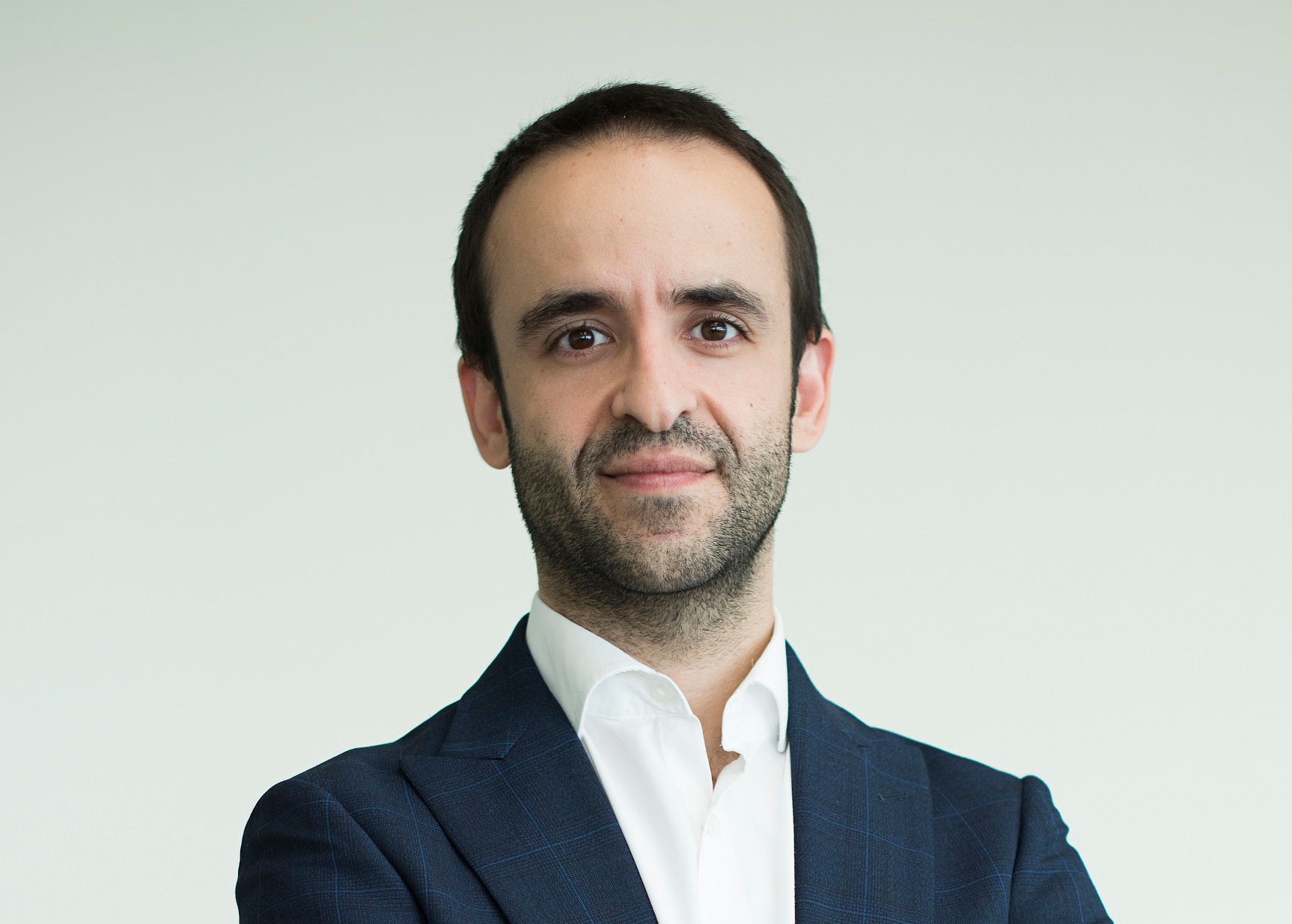
HBKU’s College of Health and Life Sciences Participates at Sidra Medicine's Precision Medicine and Functional Genomics Symposium
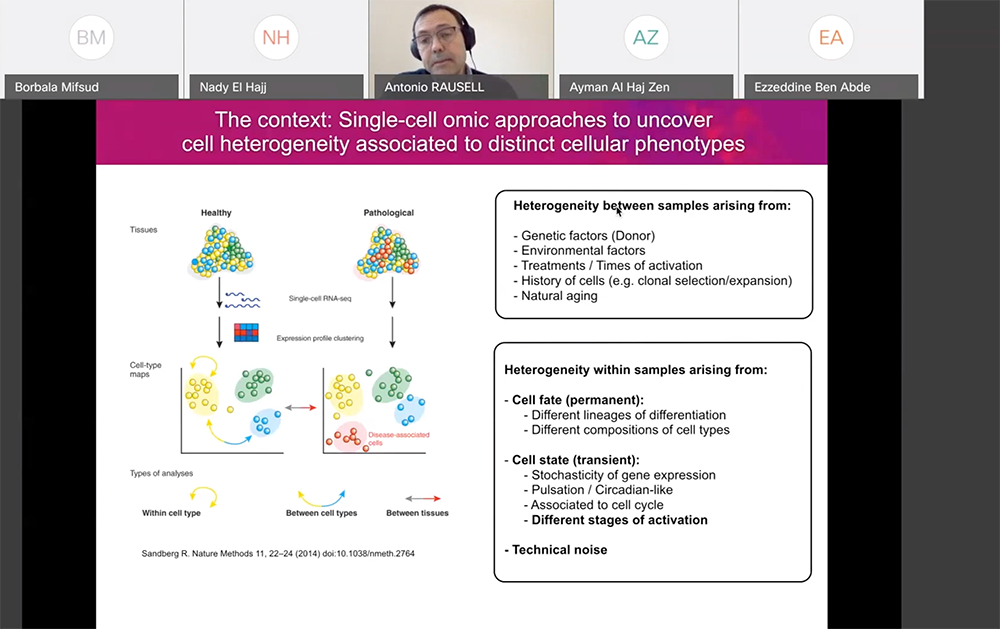
HBKU’s College of Health and Life Sciences Organizes Single-Cell Genomics Symposium

HBKU Participates at Sidra Medicine’s 9th Precision Medicine and Functional Genomics Conference

Doctorate Student at HBKU’s College of Health and Life Sciences Receives Specialist Author Award

CHLS Presents Webinar on Advances in Early Detection of Heart and Brain Diseases

Vaccination is Vital Not Only for Individual Health but Also to Thwart the Pandemic

College of Health and Life Sciences Highlights Graduate Degree Programs at Virtual Information Session

HBKU’s College of Health and Life Science Highlights Potential for Research Exchange at Qatar-Poland Roundtable

HBKU’s College of Health and Life Sciences Collaborates on Computational Analysis for Potential Drug Repurposing

HBKU’s College of Health and Life Sciences Participates at Sidra Medicine's Precision Medicine and Functional Genomics Symposium

HBKU’s College of Health and Life Sciences Organizes Single-Cell Genomics Symposium

HBKU Participates at Sidra Medicine’s 9th Precision Medicine and Functional Genomics Conference

Doctorate Student at HBKU’s College of Health and Life Sciences Receives Specialist Author Award

CHLS Presents Webinar on Advances in Early Detection of Heart and Brain Diseases

Vaccination is Vital Not Only for Individual Health but Also to Thwart the Pandemic

College of Health and Life Sciences Highlights Graduate Degree Programs at Virtual Information Session

HBKU’s College of Health and Life Science Highlights Potential for Research Exchange at Qatar-Poland Roundtable

HBKU’s College of Health and Life Sciences Collaborates on Computational Analysis for Potential Drug Repurposing

HBKU’s College of Health and Life Sciences Participates at Sidra Medicine's Precision Medicine and Functional Genomics Symposium

HBKU’s College of Health and Life Sciences Organizes Single-Cell Genomics Symposium

HBKU Participates at Sidra Medicine’s 9th Precision Medicine and Functional Genomics Conference

Doctorate Student at HBKU’s College of Health and Life Sciences Receives Specialist Author Award

CHLS Presents Webinar on Advances in Early Detection of Heart and Brain Diseases

Vaccination is Vital Not Only for Individual Health but Also to Thwart the Pandemic

College of Health and Life Sciences Highlights Graduate Degree Programs at Virtual Information Session

HBKU’s College of Health and Life Science Highlights Potential for Research Exchange at Qatar-Poland Roundtable

HBKU’s College of Health and Life Sciences Collaborates on Computational Analysis for Potential Drug Repurposing

HBKU’s College of Health and Life Sciences Participates at Sidra Medicine's Precision Medicine and Functional Genomics Symposium

HBKU’s College of Health and Life Sciences Organizes Single-Cell Genomics Symposium

HBKU Participates at Sidra Medicine’s 9th Precision Medicine and Functional Genomics Conference

Doctorate Student at HBKU’s College of Health and Life Sciences Receives Specialist Author Award

CHLS Presents Webinar on Advances in Early Detection of Heart and Brain Diseases

Vaccination is Vital Not Only for Individual Health but Also to Thwart the Pandemic

College of Health and Life Sciences Highlights Graduate Degree Programs at Virtual Information Session

HBKU’s College of Health and Life Science Highlights Potential for Research Exchange at Qatar-Poland Roundtable

HBKU’s College of Health and Life Sciences Collaborates on Computational Analysis for Potential Drug Repurposing

HBKU’s College of Health and Life Sciences Participates at Sidra Medicine's Precision Medicine and Functional Genomics Symposium

HBKU’s College of Health and Life Sciences Organizes Single-Cell Genomics Symposium

HBKU Participates at Sidra Medicine’s 9th Precision Medicine and Functional Genomics Conference

Doctorate Student at HBKU’s College of Health and Life Sciences Receives Specialist Author Award

CHLS Presents Webinar on Advances in Early Detection of Heart and Brain Diseases

Vaccination is Vital Not Only for Individual Health but Also to Thwart the Pandemic

College of Health and Life Sciences Highlights Graduate Degree Programs at Virtual Information Session

HBKU’s College of Health and Life Science Highlights Potential for Research Exchange at Qatar-Poland Roundtable

HBKU’s College of Health and Life Sciences Collaborates on Computational Analysis for Potential Drug Repurposing

HBKU’s College of Health and Life Sciences Participates at Sidra Medicine's Precision Medicine and Functional Genomics Symposium

HBKU’s College of Health and Life Sciences Organizes Single-Cell Genomics Symposium

HBKU Participates at Sidra Medicine’s 9th Precision Medicine and Functional Genomics Conference

Doctorate Student at HBKU’s College of Health and Life Sciences Receives Specialist Author Award

CHLS Presents Webinar on Advances in Early Detection of Heart and Brain Diseases

Vaccination is Vital Not Only for Individual Health but Also to Thwart the Pandemic

College of Health and Life Sciences Highlights Graduate Degree Programs at Virtual Information Session

HBKU’s College of Health and Life Science Highlights Potential for Research Exchange at Qatar-Poland Roundtable

HBKU’s College of Health and Life Sciences Collaborates on Computational Analysis for Potential Drug Repurposing

HBKU’s College of Health and Life Sciences Participates at Sidra Medicine's Precision Medicine and Functional Genomics Symposium

HBKU’s College of Health and Life Sciences Organizes Single-Cell Genomics Symposium

HBKU Participates at Sidra Medicine’s 9th Precision Medicine and Functional Genomics Conference

Doctorate Student at HBKU’s College of Health and Life Sciences Receives Specialist Author Award

CHLS Presents Webinar on Advances in Early Detection of Heart and Brain Diseases

Vaccination is Vital Not Only for Individual Health but Also to Thwart the Pandemic

College of Health and Life Sciences Highlights Graduate Degree Programs at Virtual Information Session

HBKU’s College of Health and Life Science Highlights Potential for Research Exchange at Qatar-Poland Roundtable

HBKU’s College of Health and Life Sciences Collaborates on Computational Analysis for Potential Drug Repurposing

HBKU’s College of Health and Life Sciences Participates at Sidra Medicine's Precision Medicine and Functional Genomics Symposium

HBKU’s College of Health and Life Sciences Organizes Single-Cell Genomics Symposium

HBKU Participates at Sidra Medicine’s 9th Precision Medicine and Functional Genomics Conference

Doctorate Student at HBKU’s College of Health and Life Sciences Receives Specialist Author Award

CHLS Presents Webinar on Advances in Early Detection of Heart and Brain Diseases

Vaccination is Vital Not Only for Individual Health but Also to Thwart the Pandemic

College of Health and Life Sciences Highlights Graduate Degree Programs at Virtual Information Session

HBKU’s College of Health and Life Science Highlights Potential for Research Exchange at Qatar-Poland Roundtable

HBKU’s College of Health and Life Sciences Collaborates on Computational Analysis for Potential Drug Repurposing

HBKU’s College of Health and Life Sciences Participates at Sidra Medicine's Precision Medicine and Functional Genomics Symposium

HBKU’s College of Health and Life Sciences Organizes Single-Cell Genomics Symposium

HBKU Participates at Sidra Medicine’s 9th Precision Medicine and Functional Genomics Conference

Doctorate Student at HBKU’s College of Health and Life Sciences Receives Specialist Author Award

CHLS Presents Webinar on Advances in Early Detection of Heart and Brain Diseases

Vaccination is Vital Not Only for Individual Health but Also to Thwart the Pandemic

College of Health and Life Sciences Highlights Graduate Degree Programs at Virtual Information Session

HBKU’s College of Health and Life Science Highlights Potential for Research Exchange at Qatar-Poland Roundtable

HBKU’s College of Health and Life Sciences Collaborates on Computational Analysis for Potential Drug Repurposing

HBKU’s College of Health and Life Sciences Participates at Sidra Medicine's Precision Medicine and Functional Genomics Symposium

HBKU’s College of Health and Life Sciences Organizes Single-Cell Genomics Symposium

HBKU Participates at Sidra Medicine’s 9th Precision Medicine and Functional Genomics Conference

Doctorate Student at HBKU’s College of Health and Life Sciences Receives Specialist Author Award

CHLS Presents Webinar on Advances in Early Detection of Heart and Brain Diseases

Vaccination is Vital Not Only for Individual Health but Also to Thwart the Pandemic

College of Health and Life Sciences Highlights Graduate Degree Programs at Virtual Information Session

HBKU’s College of Health and Life Science Highlights Potential for Research Exchange at Qatar-Poland Roundtable

HBKU’s College of Health and Life Sciences Collaborates on Computational Analysis for Potential Drug Repurposing

HBKU’s College of Health and Life Sciences Participates at Sidra Medicine's Precision Medicine and Functional Genomics Symposium

HBKU’s College of Health and Life Sciences Organizes Single-Cell Genomics Symposium

HBKU Participates at Sidra Medicine’s 9th Precision Medicine and Functional Genomics Conference

Doctorate Student at HBKU’s College of Health and Life Sciences Receives Specialist Author Award

CHLS Presents Webinar on Advances in Early Detection of Heart and Brain Diseases

Vaccination is Vital Not Only for Individual Health but Also to Thwart the Pandemic

College of Health and Life Sciences Highlights Graduate Degree Programs at Virtual Information Session

HBKU’s College of Health and Life Science Highlights Potential for Research Exchange at Qatar-Poland Roundtable

HBKU’s College of Health and Life Sciences Collaborates on Computational Analysis for Potential Drug Repurposing

HBKU’s College of Health and Life Sciences Participates at Sidra Medicine's Precision Medicine and Functional Genomics Symposium

HBKU’s College of Health and Life Sciences Organizes Single-Cell Genomics Symposium

HBKU Participates at Sidra Medicine’s 9th Precision Medicine and Functional Genomics Conference

Doctorate Student at HBKU’s College of Health and Life Sciences Receives Specialist Author Award

CHLS Presents Webinar on Advances in Early Detection of Heart and Brain Diseases

Vaccination is Vital Not Only for Individual Health but Also to Thwart the Pandemic

College of Health and Life Sciences Highlights Graduate Degree Programs at Virtual Information Session

HBKU’s College of Health and Life Science Highlights Potential for Research Exchange at Qatar-Poland Roundtable

HBKU’s College of Health and Life Sciences Collaborates on Computational Analysis for Potential Drug Repurposing

HBKU’s College of Health and Life Sciences Participates at Sidra Medicine's Precision Medicine and Functional Genomics Symposium

HBKU’s College of Health and Life Sciences Organizes Single-Cell Genomics Symposium

HBKU Participates at Sidra Medicine’s 9th Precision Medicine and Functional Genomics Conference

Doctorate Student at HBKU’s College of Health and Life Sciences Receives Specialist Author Award

CHLS Presents Webinar on Advances in Early Detection of Heart and Brain Diseases

Vaccination is Vital Not Only for Individual Health but Also to Thwart the Pandemic

College of Health and Life Sciences Highlights Graduate Degree Programs at Virtual Information Session

HBKU’s College of Health and Life Science Highlights Potential for Research Exchange at Qatar-Poland Roundtable

HBKU’s College of Health and Life Sciences Collaborates on Computational Analysis for Potential Drug Repurposing

HBKU’s College of Health and Life Sciences Participates at Sidra Medicine's Precision Medicine and Functional Genomics Symposium

HBKU’s College of Health and Life Sciences Organizes Single-Cell Genomics Symposium

HBKU Participates at Sidra Medicine’s 9th Precision Medicine and Functional Genomics Conference

Doctorate Student at HBKU’s College of Health and Life Sciences Receives Specialist Author Award

CHLS Presents Webinar on Advances in Early Detection of Heart and Brain Diseases

Vaccination is Vital Not Only for Individual Health but Also to Thwart the Pandemic

College of Health and Life Sciences Highlights Graduate Degree Programs at Virtual Information Session

HBKU’s College of Health and Life Science Highlights Potential for Research Exchange at Qatar-Poland Roundtable

HBKU’s College of Health and Life Sciences Collaborates on Computational Analysis for Potential Drug Repurposing

HBKU’s College of Health and Life Sciences Participates at Sidra Medicine's Precision Medicine and Functional Genomics Symposium

HBKU’s College of Health and Life Sciences Organizes Single-Cell Genomics Symposium

HBKU Participates at Sidra Medicine’s 9th Precision Medicine and Functional Genomics Conference

Doctorate Student at HBKU’s College of Health and Life Sciences Receives Specialist Author Award

CHLS Presents Webinar on Advances in Early Detection of Heart and Brain Diseases

Vaccination is Vital Not Only for Individual Health but Also to Thwart the Pandemic

College of Health and Life Sciences Highlights Graduate Degree Programs at Virtual Information Session

HBKU’s College of Health and Life Science Highlights Potential for Research Exchange at Qatar-Poland Roundtable

HBKU’s College of Health and Life Sciences Collaborates on Computational Analysis for Potential Drug Repurposing

HBKU’s College of Health and Life Sciences Participates at Sidra Medicine's Precision Medicine and Functional Genomics Symposium

HBKU’s College of Health and Life Sciences Organizes Single-Cell Genomics Symposium

HBKU Participates at Sidra Medicine’s 9th Precision Medicine and Functional Genomics Conference

Doctorate Student at HBKU’s College of Health and Life Sciences Receives Specialist Author Award

CHLS Presents Webinar on Advances in Early Detection of Heart and Brain Diseases

Vaccination is Vital Not Only for Individual Health but Also to Thwart the Pandemic

College of Health and Life Sciences Highlights Graduate Degree Programs at Virtual Information Session

HBKU’s College of Health and Life Science Highlights Potential for Research Exchange at Qatar-Poland Roundtable

HBKU’s College of Health and Life Sciences Collaborates on Computational Analysis for Potential Drug Repurposing

HBKU’s College of Health and Life Sciences Participates at Sidra Medicine's Precision Medicine and Functional Genomics Symposium

HBKU’s College of Health and Life Sciences Organizes Single-Cell Genomics Symposium

HBKU Participates at Sidra Medicine’s 9th Precision Medicine and Functional Genomics Conference

Doctorate Student at HBKU’s College of Health and Life Sciences Receives Specialist Author Award

CHLS Presents Webinar on Advances in Early Detection of Heart and Brain Diseases

Vaccination is Vital Not Only for Individual Health but Also to Thwart the Pandemic

College of Health and Life Sciences Highlights Graduate Degree Programs at Virtual Information Session

HBKU’s College of Health and Life Science Highlights Potential for Research Exchange at Qatar-Poland Roundtable

HBKU’s College of Health and Life Sciences Collaborates on Computational Analysis for Potential Drug Repurposing

HBKU’s College of Health and Life Sciences Participates at Sidra Medicine's Precision Medicine and Functional Genomics Symposium

HBKU’s College of Health and Life Sciences Organizes Single-Cell Genomics Symposium

HBKU Participates at Sidra Medicine’s 9th Precision Medicine and Functional Genomics Conference

Doctorate Student at HBKU’s College of Health and Life Sciences Receives Specialist Author Award

CHLS Presents Webinar on Advances in Early Detection of Heart and Brain Diseases

Vaccination is Vital Not Only for Individual Health but Also to Thwart the Pandemic

College of Health and Life Sciences Highlights Graduate Degree Programs at Virtual Information Session

HBKU’s College of Health and Life Science Highlights Potential for Research Exchange at Qatar-Poland Roundtable

HBKU’s College of Health and Life Sciences Collaborates on Computational Analysis for Potential Drug Repurposing

HBKU’s College of Health and Life Sciences Participates at Sidra Medicine's Precision Medicine and Functional Genomics Symposium

HBKU’s College of Health and Life Sciences Organizes Single-Cell Genomics Symposium

HBKU Participates at Sidra Medicine’s 9th Precision Medicine and Functional Genomics Conference

Doctorate Student at HBKU’s College of Health and Life Sciences Receives Specialist Author Award

CHLS Presents Webinar on Advances in Early Detection of Heart and Brain Diseases

Vaccination is Vital Not Only for Individual Health but Also to Thwart the Pandemic

College of Health and Life Sciences Highlights Graduate Degree Programs at Virtual Information Session

HBKU’s College of Health and Life Science Highlights Potential for Research Exchange at Qatar-Poland Roundtable

HBKU’s College of Health and Life Sciences Collaborates on Computational Analysis for Potential Drug Repurposing

HBKU’s College of Health and Life Sciences Participates at Sidra Medicine's Precision Medicine and Functional Genomics Symposium

HBKU’s College of Health and Life Sciences Organizes Single-Cell Genomics Symposium

HBKU Participates at Sidra Medicine’s 9th Precision Medicine and Functional Genomics Conference

Doctorate Student at HBKU’s College of Health and Life Sciences Receives Specialist Author Award

CHLS Presents Webinar on Advances in Early Detection of Heart and Brain Diseases

Vaccination is Vital Not Only for Individual Health but Also to Thwart the Pandemic

College of Health and Life Sciences Highlights Graduate Degree Programs at Virtual Information Session

HBKU’s College of Health and Life Science Highlights Potential for Research Exchange at Qatar-Poland Roundtable

HBKU’s College of Health and Life Sciences Collaborates on Computational Analysis for Potential Drug Repurposing

HBKU’s College of Health and Life Sciences Participates at Sidra Medicine's Precision Medicine and Functional Genomics Symposium

HBKU’s College of Health and Life Sciences Organizes Single-Cell Genomics Symposium

HBKU Participates at Sidra Medicine’s 9th Precision Medicine and Functional Genomics Conference

Doctorate Student at HBKU’s College of Health and Life Sciences Receives Specialist Author Award

CHLS Presents Webinar on Advances in Early Detection of Heart and Brain Diseases

Vaccination is Vital Not Only for Individual Health but Also to Thwart the Pandemic

College of Health and Life Sciences Highlights Graduate Degree Programs at Virtual Information Session

HBKU’s College of Health and Life Science Highlights Potential for Research Exchange at Qatar-Poland Roundtable

HBKU’s College of Health and Life Sciences Collaborates on Computational Analysis for Potential Drug Repurposing

HBKU’s College of Health and Life Sciences Participates at Sidra Medicine's Precision Medicine and Functional Genomics Symposium

HBKU’s College of Health and Life Sciences Organizes Single-Cell Genomics Symposium

HBKU Participates at Sidra Medicine’s 9th Precision Medicine and Functional Genomics Conference

Doctorate Student at HBKU’s College of Health and Life Sciences Receives Specialist Author Award

CHLS Presents Webinar on Advances in Early Detection of Heart and Brain Diseases

Vaccination is Vital Not Only for Individual Health but Also to Thwart the Pandemic

College of Health and Life Sciences Highlights Graduate Degree Programs at Virtual Information Session

HBKU’s College of Health and Life Science Highlights Potential for Research Exchange at Qatar-Poland Roundtable

HBKU’s College of Health and Life Sciences Collaborates on Computational Analysis for Potential Drug Repurposing

HBKU’s College of Health and Life Sciences Participates at Sidra Medicine's Precision Medicine and Functional Genomics Symposium

HBKU’s College of Health and Life Sciences Organizes Single-Cell Genomics Symposium

HBKU Participates at Sidra Medicine’s 9th Precision Medicine and Functional Genomics Conference

Doctorate Student at HBKU’s College of Health and Life Sciences Receives Specialist Author Award

CHLS Presents Webinar on Advances in Early Detection of Heart and Brain Diseases

Vaccination is Vital Not Only for Individual Health but Also to Thwart the Pandemic

College of Health and Life Sciences Highlights Graduate Degree Programs at Virtual Information Session

HBKU’s College of Health and Life Science Highlights Potential for Research Exchange at Qatar-Poland Roundtable

HBKU’s College of Health and Life Sciences Collaborates on Computational Analysis for Potential Drug Repurposing

HBKU’s College of Health and Life Sciences Participates at Sidra Medicine's Precision Medicine and Functional Genomics Symposium

HBKU’s College of Health and Life Sciences Organizes Single-Cell Genomics Symposium

HBKU Participates at Sidra Medicine’s 9th Precision Medicine and Functional Genomics Conference

Doctorate Student at HBKU’s College of Health and Life Sciences Receives Specialist Author Award

CHLS Presents Webinar on Advances in Early Detection of Heart and Brain Diseases

Vaccination is Vital Not Only for Individual Health but Also to Thwart the Pandemic

College of Health and Life Sciences Highlights Graduate Degree Programs at Virtual Information Session

HBKU’s College of Health and Life Science Highlights Potential for Research Exchange at Qatar-Poland Roundtable

HBKU’s College of Health and Life Sciences Collaborates on Computational Analysis for Potential Drug Repurposing

HBKU’s College of Health and Life Sciences Participates at Sidra Medicine's Precision Medicine and Functional Genomics Symposium

HBKU’s College of Health and Life Sciences Organizes Single-Cell Genomics Symposium

HBKU Participates at Sidra Medicine’s 9th Precision Medicine and Functional Genomics Conference

Doctorate Student at HBKU’s College of Health and Life Sciences Receives Specialist Author Award

CHLS Presents Webinar on Advances in Early Detection of Heart and Brain Diseases

Vaccination is Vital Not Only for Individual Health but Also to Thwart the Pandemic

College of Health and Life Sciences Highlights Graduate Degree Programs at Virtual Information Session

HBKU’s College of Health and Life Science Highlights Potential for Research Exchange at Qatar-Poland Roundtable

HBKU’s College of Health and Life Sciences Collaborates on Computational Analysis for Potential Drug Repurposing

HBKU’s College of Health and Life Sciences Participates at Sidra Medicine's Precision Medicine and Functional Genomics Symposium

HBKU’s College of Health and Life Sciences Organizes Single-Cell Genomics Symposium

HBKU Participates at Sidra Medicine’s 9th Precision Medicine and Functional Genomics Conference

Doctorate Student at HBKU’s College of Health and Life Sciences Receives Specialist Author Award

CHLS Presents Webinar on Advances in Early Detection of Heart and Brain Diseases

Vaccination is Vital Not Only for Individual Health but Also to Thwart the Pandemic

College of Health and Life Sciences Highlights Graduate Degree Programs at Virtual Information Session

HBKU’s College of Health and Life Science Highlights Potential for Research Exchange at Qatar-Poland Roundtable

HBKU’s College of Health and Life Sciences Collaborates on Computational Analysis for Potential Drug Repurposing

HBKU’s College of Health and Life Sciences Participates at Sidra Medicine's Precision Medicine and Functional Genomics Symposium

HBKU’s College of Health and Life Sciences Organizes Single-Cell Genomics Symposium

HBKU Participates at Sidra Medicine’s 9th Precision Medicine and Functional Genomics Conference

Doctorate Student at HBKU’s College of Health and Life Sciences Receives Specialist Author Award

CHLS Presents Webinar on Advances in Early Detection of Heart and Brain Diseases

Vaccination is Vital Not Only for Individual Health but Also to Thwart the Pandemic

College of Health and Life Sciences Highlights Graduate Degree Programs at Virtual Information Session

HBKU’s College of Health and Life Science Highlights Potential for Research Exchange at Qatar-Poland Roundtable

HBKU’s College of Health and Life Sciences Collaborates on Computational Analysis for Potential Drug Repurposing

HBKU’s College of Health and Life Sciences Participates at Sidra Medicine's Precision Medicine and Functional Genomics Symposium

HBKU’s College of Health and Life Sciences Organizes Single-Cell Genomics Symposium

HBKU Participates at Sidra Medicine’s 9th Precision Medicine and Functional Genomics Conference

Doctorate Student at HBKU’s College of Health and Life Sciences Receives Specialist Author Award

CHLS Presents Webinar on Advances in Early Detection of Heart and Brain Diseases

Vaccination is Vital Not Only for Individual Health but Also to Thwart the Pandemic

College of Health and Life Sciences Highlights Graduate Degree Programs at Virtual Information Session

HBKU’s College of Health and Life Science Highlights Potential for Research Exchange at Qatar-Poland Roundtable

HBKU’s College of Health and Life Sciences Collaborates on Computational Analysis for Potential Drug Repurposing

HBKU’s College of Health and Life Sciences Participates at Sidra Medicine's Precision Medicine and Functional Genomics Symposium

HBKU’s College of Health and Life Sciences Organizes Single-Cell Genomics Symposium

HBKU Participates at Sidra Medicine’s 9th Precision Medicine and Functional Genomics Conference

Doctorate Student at HBKU’s College of Health and Life Sciences Receives Specialist Author Award

CHLS Presents Webinar on Advances in Early Detection of Heart and Brain Diseases

Vaccination is Vital Not Only for Individual Health but Also to Thwart the Pandemic

College of Health and Life Sciences Highlights Graduate Degree Programs at Virtual Information Session

HBKU’s College of Health and Life Science Highlights Potential for Research Exchange at Qatar-Poland Roundtable

HBKU’s College of Health and Life Sciences Collaborates on Computational Analysis for Potential Drug Repurposing

HBKU’s College of Health and Life Sciences Participates at Sidra Medicine's Precision Medicine and Functional Genomics Symposium

HBKU’s College of Health and Life Sciences Organizes Single-Cell Genomics Symposium

HBKU Participates at Sidra Medicine’s 9th Precision Medicine and Functional Genomics Conference

Doctorate Student at HBKU’s College of Health and Life Sciences Receives Specialist Author Award

CHLS Presents Webinar on Advances in Early Detection of Heart and Brain Diseases

Vaccination is Vital Not Only for Individual Health but Also to Thwart the Pandemic

College of Health and Life Sciences Highlights Graduate Degree Programs at Virtual Information Session

HBKU’s College of Health and Life Science Highlights Potential for Research Exchange at Qatar-Poland Roundtable

HBKU’s College of Health and Life Sciences Collaborates on Computational Analysis for Potential Drug Repurposing

HBKU’s College of Health and Life Sciences Participates at Sidra Medicine's Precision Medicine and Functional Genomics Symposium

HBKU’s College of Health and Life Sciences Organizes Single-Cell Genomics Symposium

HBKU Participates at Sidra Medicine’s 9th Precision Medicine and Functional Genomics Conference

Doctorate Student at HBKU’s College of Health and Life Sciences Receives Specialist Author Award

CHLS Presents Webinar on Advances in Early Detection of Heart and Brain Diseases

Vaccination is Vital Not Only for Individual Health but Also to Thwart the Pandemic

College of Health and Life Sciences Highlights Graduate Degree Programs at Virtual Information Session

HBKU’s College of Health and Life Science Highlights Potential for Research Exchange at Qatar-Poland Roundtable

HBKU’s College of Health and Life Sciences Collaborates on Computational Analysis for Potential Drug Repurposing

HBKU’s College of Health and Life Sciences Participates at Sidra Medicine's Precision Medicine and Functional Genomics Symposium

HBKU’s College of Health and Life Sciences Organizes Single-Cell Genomics Symposium

HBKU Participates at Sidra Medicine’s 9th Precision Medicine and Functional Genomics Conference

Doctorate Student at HBKU’s College of Health and Life Sciences Receives Specialist Author Award

CHLS Presents Webinar on Advances in Early Detection of Heart and Brain Diseases

Vaccination is Vital Not Only for Individual Health but Also to Thwart the Pandemic

College of Health and Life Sciences Highlights Graduate Degree Programs at Virtual Information Session

HBKU’s College of Health and Life Science Highlights Potential for Research Exchange at Qatar-Poland Roundtable

HBKU’s College of Health and Life Sciences Collaborates on Computational Analysis for Potential Drug Repurposing

HBKU’s College of Health and Life Sciences Participates at Sidra Medicine's Precision Medicine and Functional Genomics Symposium

HBKU’s College of Health and Life Sciences Organizes Single-Cell Genomics Symposium

HBKU Participates at Sidra Medicine’s 9th Precision Medicine and Functional Genomics Conference

Doctorate Student at HBKU’s College of Health and Life Sciences Receives Specialist Author Award

CHLS Presents Webinar on Advances in Early Detection of Heart and Brain Diseases

Vaccination is Vital Not Only for Individual Health but Also to Thwart the Pandemic

College of Health and Life Sciences Highlights Graduate Degree Programs at Virtual Information Session

HBKU’s College of Health and Life Science Highlights Potential for Research Exchange at Qatar-Poland Roundtable

HBKU’s College of Health and Life Sciences Collaborates on Computational Analysis for Potential Drug Repurposing

HBKU’s College of Health and Life Sciences Participates at Sidra Medicine's Precision Medicine and Functional Genomics Symposium

HBKU’s College of Health and Life Sciences Organizes Single-Cell Genomics Symposium

HBKU Participates at Sidra Medicine’s 9th Precision Medicine and Functional Genomics Conference

Doctorate Student at HBKU’s College of Health and Life Sciences Receives Specialist Author Award

CHLS Presents Webinar on Advances in Early Detection of Heart and Brain Diseases

Vaccination is Vital Not Only for Individual Health but Also to Thwart the Pandemic

College of Health and Life Sciences Highlights Graduate Degree Programs at Virtual Information Session

HBKU’s College of Health and Life Science Highlights Potential for Research Exchange at Qatar-Poland Roundtable

HBKU’s College of Health and Life Sciences Collaborates on Computational Analysis for Potential Drug Repurposing

HBKU’s College of Health and Life Sciences Participates at Sidra Medicine's Precision Medicine and Functional Genomics Symposium

HBKU’s College of Health and Life Sciences Organizes Single-Cell Genomics Symposium

HBKU Participates at Sidra Medicine’s 9th Precision Medicine and Functional Genomics Conference

Doctorate Student at HBKU’s College of Health and Life Sciences Receives Specialist Author Award

CHLS Presents Webinar on Advances in Early Detection of Heart and Brain Diseases

Vaccination is Vital Not Only for Individual Health but Also to Thwart the Pandemic

College of Health and Life Sciences Highlights Graduate Degree Programs at Virtual Information Session

HBKU’s College of Health and Life Science Highlights Potential for Research Exchange at Qatar-Poland Roundtable

HBKU’s College of Health and Life Sciences Collaborates on Computational Analysis for Potential Drug Repurposing

HBKU’s College of Health and Life Sciences Participates at Sidra Medicine's Precision Medicine and Functional Genomics Symposium

HBKU’s College of Health and Life Sciences Organizes Single-Cell Genomics Symposium

HBKU Participates at Sidra Medicine’s 9th Precision Medicine and Functional Genomics Conference

Doctorate Student at HBKU’s College of Health and Life Sciences Receives Specialist Author Award

CHLS Presents Webinar on Advances in Early Detection of Heart and Brain Diseases

Vaccination is Vital Not Only for Individual Health but Also to Thwart the Pandemic

College of Health and Life Sciences Highlights Graduate Degree Programs at Virtual Information Session

HBKU’s College of Health and Life Science Highlights Potential for Research Exchange at Qatar-Poland Roundtable

HBKU’s College of Health and Life Sciences Collaborates on Computational Analysis for Potential Drug Repurposing

HBKU’s College of Health and Life Sciences Participates at Sidra Medicine's Precision Medicine and Functional Genomics Symposium

HBKU’s College of Health and Life Sciences Organizes Single-Cell Genomics Symposium

HBKU Participates at Sidra Medicine’s 9th Precision Medicine and Functional Genomics Conference

Doctorate Student at HBKU’s College of Health and Life Sciences Receives Specialist Author Award

CHLS Presents Webinar on Advances in Early Detection of Heart and Brain Diseases

Vaccination is Vital Not Only for Individual Health but Also to Thwart the Pandemic

College of Health and Life Sciences Highlights Graduate Degree Programs at Virtual Information Session

HBKU’s College of Health and Life Science Highlights Potential for Research Exchange at Qatar-Poland Roundtable

HBKU’s College of Health and Life Sciences Collaborates on Computational Analysis for Potential Drug Repurposing

HBKU’s College of Health and Life Sciences Participates at Sidra Medicine's Precision Medicine and Functional Genomics Symposium

HBKU’s College of Health and Life Sciences Organizes Single-Cell Genomics Symposium

HBKU Participates at Sidra Medicine’s 9th Precision Medicine and Functional Genomics Conference

Doctorate Student at HBKU’s College of Health and Life Sciences Receives Specialist Author Award

CHLS Presents Webinar on Advances in Early Detection of Heart and Brain Diseases

Vaccination is Vital Not Only for Individual Health but Also to Thwart the Pandemic

College of Health and Life Sciences Highlights Graduate Degree Programs at Virtual Information Session

HBKU’s College of Health and Life Science Highlights Potential for Research Exchange at Qatar-Poland Roundtable

HBKU’s College of Health and Life Sciences Collaborates on Computational Analysis for Potential Drug Repurposing

HBKU’s College of Health and Life Sciences Participates at Sidra Medicine's Precision Medicine and Functional Genomics Symposium

HBKU’s College of Health and Life Sciences Organizes Single-Cell Genomics Symposium

HBKU Participates at Sidra Medicine’s 9th Precision Medicine and Functional Genomics Conference

Doctorate Student at HBKU’s College of Health and Life Sciences Receives Specialist Author Award

CHLS Presents Webinar on Advances in Early Detection of Heart and Brain Diseases

Vaccination is Vital Not Only for Individual Health but Also to Thwart the Pandemic

College of Health and Life Sciences Highlights Graduate Degree Programs at Virtual Information Session

HBKU’s College of Health and Life Science Highlights Potential for Research Exchange at Qatar-Poland Roundtable

HBKU’s College of Health and Life Sciences Collaborates on Computational Analysis for Potential Drug Repurposing

HBKU’s College of Health and Life Sciences Participates at Sidra Medicine's Precision Medicine and Functional Genomics Symposium










